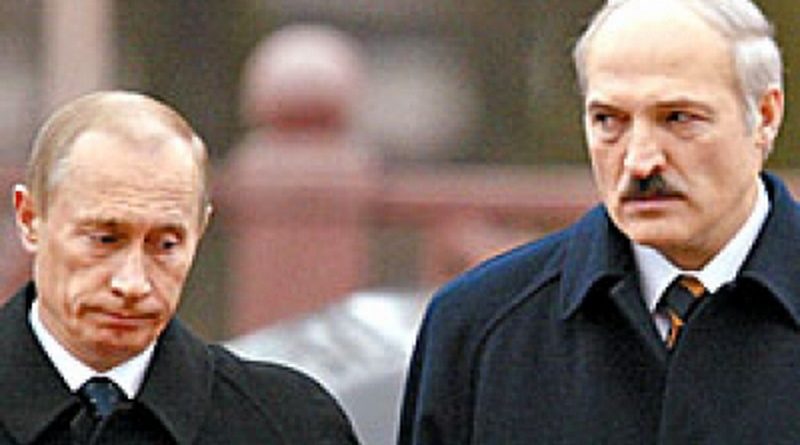Ukrainians are fundamentally ignorant of the situation in neighboring Belarus and do not realize that “if the number of Belarusians supporting Russia’s actions in the Donbas reaches Russian levels, Ukraine will face yet another 1,000-kilometer-long front, according to Natalya Radina, the chief editor of Charter 97.

In an interview with Elena Poskannaya of Ukraine’s Gordon News Agency, Radina says that it is “surprising” that “the Ukrainian media present Belarus as some kind of economic miracle, leaving the Ukrainians certain that it is a heaven on earth” and no threat to Ukraine.
“In reality,” she says, “Ukrainians do not know anything about the life of the neighboring state,” they do not recognize that the Belarusian economy is unreformed and survives only on Russian aid, and they do not know that the Belarusian authorities are guilty of “bestial crimes against humanity, kill leaders of the opposition, and that there is no freedom of speech or assembly.”
Nor do they recognize that Belarusians are hostile to Ukraine. “According to polls, 60 percent of Belarusians support the actions of Russia in the Donbas and in Crimea,” something extremely dangerous for Ukraine. If Belarusian support reaches Russian levels, Ukraine will face “another 1,000-kilometer-long front.”
And this will be “a front with Russia because, believe me, no one will ask Lukashenka whether Moscow can put forces on the territory of the republic or not,” Radina says. Belarus is part of a Union State with Russia, and thus “de facto Belarus is a region of the Russian Federation,” completely comparable with occupied Crimea.
Lukashenka likes to act as if he is a brilliant and independent leader but in fact, he and his country are totally dependent on Russia, and consequently, “to speak about some kind of Belarusian independence is simply laughable.” Putin will do what he wants and when he wants to in Belarus.
Ukrainian defense officials understand this, see Russia preparing for war against Ukraine from Belarus, but the Ukrainian political leadership is not prepared to take the obvious steps, build up border defenses, and treat Lukashenka’s regime as a Moscow dependency. Instead, Kyiv supports him by lobbying for him in the West.
Radina says that the recent decision by Europe to lift some sanctions on Belarus is in fact intended to allow European firms to export to Russia bypassing the sanctions regime there by means of the simple trick of relabeling European goods as being the products of Belarus, a concession by political elites in Europe to economic ones.
Radina says that elections in Belarus will not accomplish anything because of the nature of Lukashenka’s regime and that the opposition must organize underground in order to be able to move when the time is right, exploiting increasing popular unhappiness with the deteriorating economic situation.
For the time being, Lukashenka is well-defended: he has seven times more policemen per 100,000 population than was the case in Soviet times, not even considering the various special services at his command. Nevertheless, she says, there is hope if the opposition organizes itself in a most secret way.
She devotes the remainder of her interview to arguing that Ukrainian media must give better coverage to Belarusian events and demand that Lukashenka fulfill his promise to allow Ukrainian television to be broadcast in Belarus. She also urges Ukrainians to press their Western partners to broadcast into Belarus to help its people change and to protect Ukraine.





